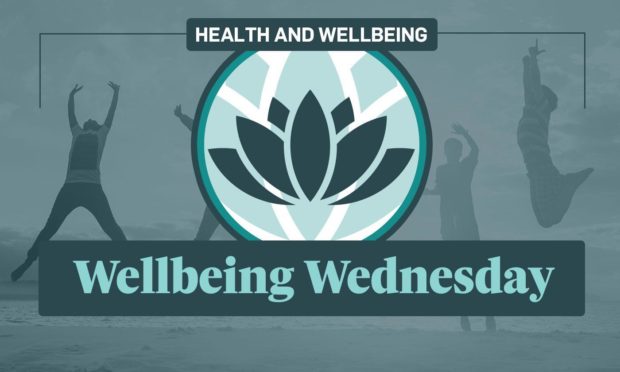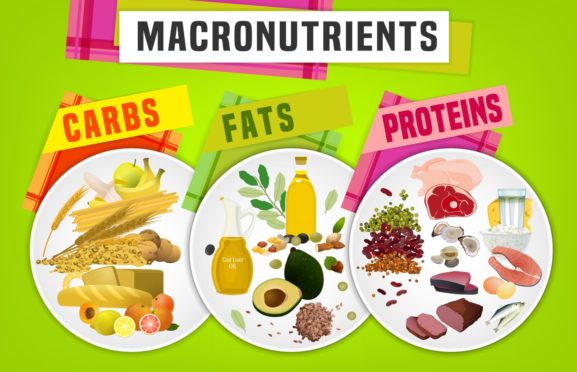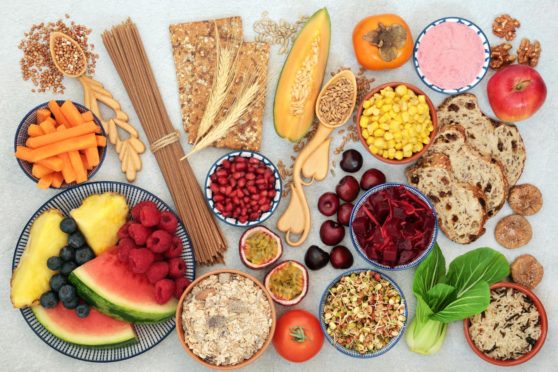Looking after your wellbeing… what does this really mean?
It means to look after yourself and it’s important to look out for the physical and mental health of both you, your friends and your family.
The Press and Journal’s health and wellbeing team recognise this, and that’s why we’ve launched a new series, Wellbeing Wednesday.
From today, we’ll bring our readers weekly content focused on ways to improve their overall health and happiness, bringing expert advice to the table.
It’s not unheard of to hear of people going on no-carb or low-carb diets when they want to shift a bit of unwanted weight.
But did you know it’s important we do, in fact, factor carbohydrates into our meals?
This week we bring you expert advice from Dr Lindsey Masson, a lecturer in nutrition at Robert Gordon University, who tells us why carbs are vital for a balanced, healthy diet.
What are carbohydrates and why do we need them?
Carbohydrates belong to a food group called macronutrients. Also included in the group are proteins and fats, and they all play specific roles in our diet.
Carbs provide energy in the form of calories to help fuel the body. They’re broken down into glucose, the primary energy source for the brain and muscles.
We need those calories for all our organs to work, for our basal metabolic rate – the energy required to keep your body functioning at rest – as well as for muscular contractions, our physical energy and the absorption and storage of nutrients.
Sugar is the basic molecule of a carbohydrate, and it can be found in lactose – a sugar naturally found in milk and dairy products. While fructose is a sugar naturally found in the cells of fruit.
To keep healthy, experts recommend we have no more than 5% of free sugars – sugars not found in food cells – in our diets each day.
Why is limiting carbs “dangerous”?
“The public perception at the moment is that carbs are bad but that’s incorrect, and I would say perhaps dangerous,” Dr Masson said.
“It’s all about balance and if you’re on a really low carbohydrate diet for a long period of time, it can result in headaches and dizziness and can have longer term effects.
“Diet is all about balance and not having too little or too much of any one thing.”
Why is cutting carbs not a sustainable way to lose weight?
If a person cuts out carbs completely it’ll cause a calorie deficit which will result in weight loss. Sounds like the goal, doesn’t it?
But eliminating carbs from your diet long-term isn’t sustainable – or easy. So often what happens is people reach their goal weight, then rebound and end up putting the lost pounds back on.
It’s recommended to cut back on nutrient poor carbs like crisps, sweets, cakes or sugary drinks, and instead focus on still eating nutrient dense, fibrous choices like wholegrains, fruits or root veg.
Fibrous choices – why are they important?
Dr Masson says eating the right amount of fibre is important for our diets to maintain good gut health.
“Fibre is hugely important,” she said. “There’s strong evidence that consuming wholegrains and foods containing dietary fibre decreases the risk of colorectal cancer.
“But it also helps lower the risk of heart disease, type two diabetes, as well as preventing constipation, haemorrhoids and diverticular disease.”
It’s recommended that we eat about 3o grams of dietary fibre a day, but most people in the UK eat around two-thirds of this, so are not meeting the government recommendations.
How can we eat more fibre?
Dr Masson recommends eating more wholemeal bread, wholewheat pasta or brown rice. By doing so it helps to make sure our food is not stripped of fibre, essential B vitamins, minerals and antioxidants.
“If we start with breakfast and cereal, we should be choosing a wholegrain high fibre breakfast cereal like Weetabix, bran flakes or porridge oats, and ideally not choosing a sugary cereal,” she said.
“Sometimes cereals are promoted as being high fibre but if you look carefully, they can also be high in sugar and the sugar is added obviously to make it taste good.
“Wholewheat pasta and brown rice are more filling, and I know they taste different, but once you’ve added your meat or vegetables or sauce you won’t notice it as much.
“It’s about starting healthy habits that you can maintain long term to increase fibre intake.
“Also consume more pulses. Beans, lentils and chickpeas can be added to curries, or mince dishes.”
The British Nutrition Foundation has created a seven-day meal plan if you need help to make sure you’re eating enough fibre and to help reduce your sugar intake.



